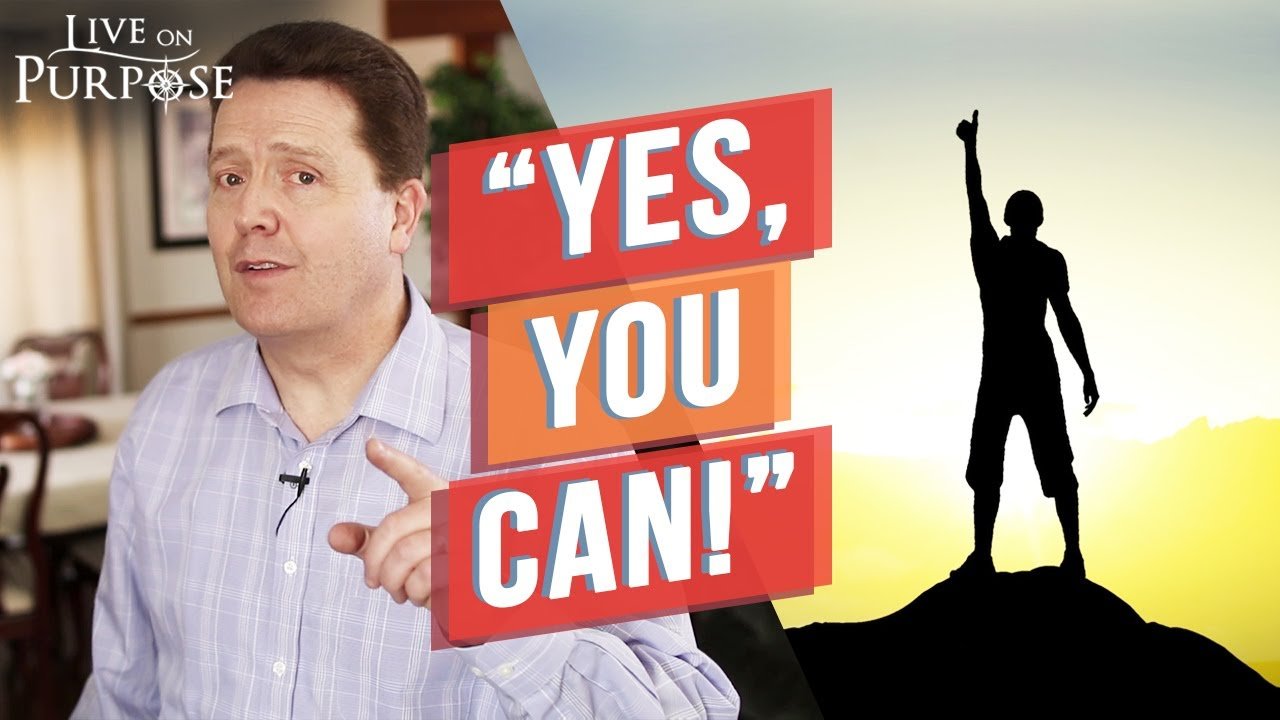Life is full of hard things, so why wouldn’t we want to prepare our kids to handle them? In this video titled “How To Do Hard Things: Brain Hacks for Older Kids and Teens” by Live On Purpose TV, Dr. Paul Jenkins shares some valuable brain hacks that will help older kids and teens to embrace and conquer difficult tasks. By practicing these hacks, kids will develop the ability to face challenges head-on and overcome any resistance or fear that may hold them back. Dr. Jenkins emphasizes the importance of doing hard things now to create a more manageable and fulfilling life in the future. So, get ready to empower yourself with these brain hacks and unlock your full potential!
Dr. Jenkins shares a personal story about participating in a fire walk, where he had to walk barefoot across a bed of hot coals. He explains that even though it seemed impossible and scary, he was able to accomplish it safely because he had the guidance of a trained professional. This story serves as a metaphor for the hard things in life that may seem daunting at first, but with the right mindset and strategies, they can be overcome. Dr. Jenkins encourages kids to practice saying “I’ve got this” to build confidence, shift their perspective by asking “why not me?” instead of “why me?”, and replace “I can’t” with “how can I?”. These brain hacks will help kids develop resilience, problem-solving skills, and the determination to tackle any challenge that comes their way. So, get ready to embrace the hard things and watch your life transform!
Introduction
Life is full of hard things, and as older kids and teens, it’s important to learn how to handle them. In this article, we will discuss some brain hacks that can help you tackle difficult challenges and develop the necessary skills to overcome them. By preparing yourself to do hard things now, you are setting the foundation for a fulfilling and successful life in the future.
Brain Hack: Saying ‘I’ve got this’
Positive self-talk is a powerful tool that can boost your confidence and energy when facing difficult tasks. By practicing saying “I’ve got this,” you are reaffirming your ability to handle whatever comes your way. This simple phrase can change the way you perceive challenges and give you the energy to approach them differently than before.
Brain Hack: Quit Whining
Instead of dwelling on the negative aspects of a challenging situation and asking “why me?”, try shifting your perspective and asking “why not me?”. This change in mindset allows you to see yourself as capable of overcoming obstacles and highlights that difficulty is not exclusive to you. By quitting the habit of whining and adopting a more proactive attitude, you can develop resilience and the ability to tackle hard things head-on.

Brain Hack: Ask ‘how can I?’
When faced with a challenge, it is easy to feel overwhelmed and believe that you can’t overcome it. However, by reframing your thinking and asking “how can I?”, you open up possibilities for finding solutions and alternatives. Instead of shutting down and saying “I can’t”, this mindset shift encourages you to explore different avenues, think creatively, and take proactive steps towards overcoming the difficult task.
Benefits of Doing Hard Things
Taking on hard tasks and challenges has numerous benefits that extend beyond the immediate difficulty. By embracing hard things, you are equipping yourself with the necessary skills and experiences to create an easier life for yourself in the future. Additionally, pushing yourself to do hard things allows you to gain new experiences, develop resilience, and opens up opportunities that you may not have otherwise encountered.
Examples in Different Areas of Life
The willingness to do hard things is applicable to various aspects of life. Whether it’s excelling academically, building strong relationships with family and friends, or pursuing personal growth and development, the ability to handle difficult situations with grace and determination is essential. By embracing challenges in these areas, you will pave the way for personal growth, success, and fulfillment in each aspect of your life.
Tips for Overcoming Resistance
Resistance often arises when facing hard things, but there are strategies you can use to overcome it. Breaking tasks into smaller steps allows you to approach them more manageably and makes the overall challenge seem less daunting. Setting goals and rewards helps to motivate you and provides a sense of accomplishment as you make progress. Additionally, finding support in the form of friends, family, or mentors can provide encouragement and guidance as you tackle difficult tasks.
Dealing with Fear and Failure
Fear and failure are inevitable when doing hard things, but understanding their impact can help you navigate them. Fear often arises from the unknown or from past experiences, but it’s important to remember that fear does not define you or your abilities. Learning from failures and setbacks allows you to grow and develop resilience. With the right mindset, fear and failure can be seen as stepping stones towards success rather than deterrents.
Teaching Resilience and Perseverance
It is important to develop resilience and perseverance, as these traits will serve you well in the face of hard things. Encouraging a growth mindset, where you view challenges as opportunities for learning and growth, can help foster resilience. Additionally, developing problem-solving skills enables you to approach difficult situations with a systematic and proactive mindset, finding solutions and pushing through barriers.
Conclusion
Embracing the challenge of hard things is a crucial step in unlocking a fulfilling and successful life. By utilizing brain hacks such as positive self-talk, reframing perspectives, and adopting a proactive mindset, you can equip yourself to handle difficult tasks with confidence and energy. The benefits of embracing hard things extend beyond immediate challenges, leading to personal growth, new opportunities, and a life filled with fulfillment and success. So, embrace the challenge, say “I’ve got this,” and unlock the potential within you.

